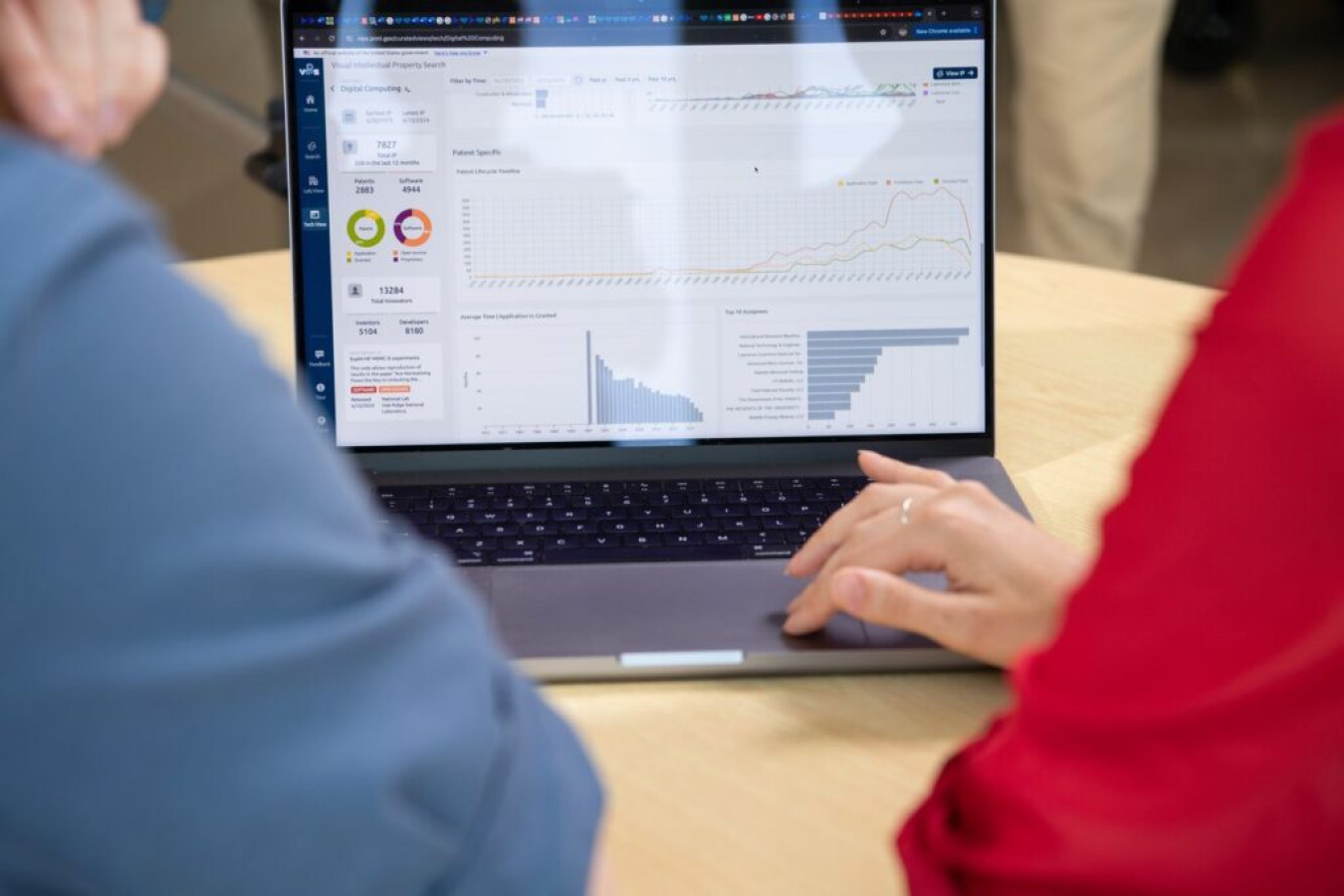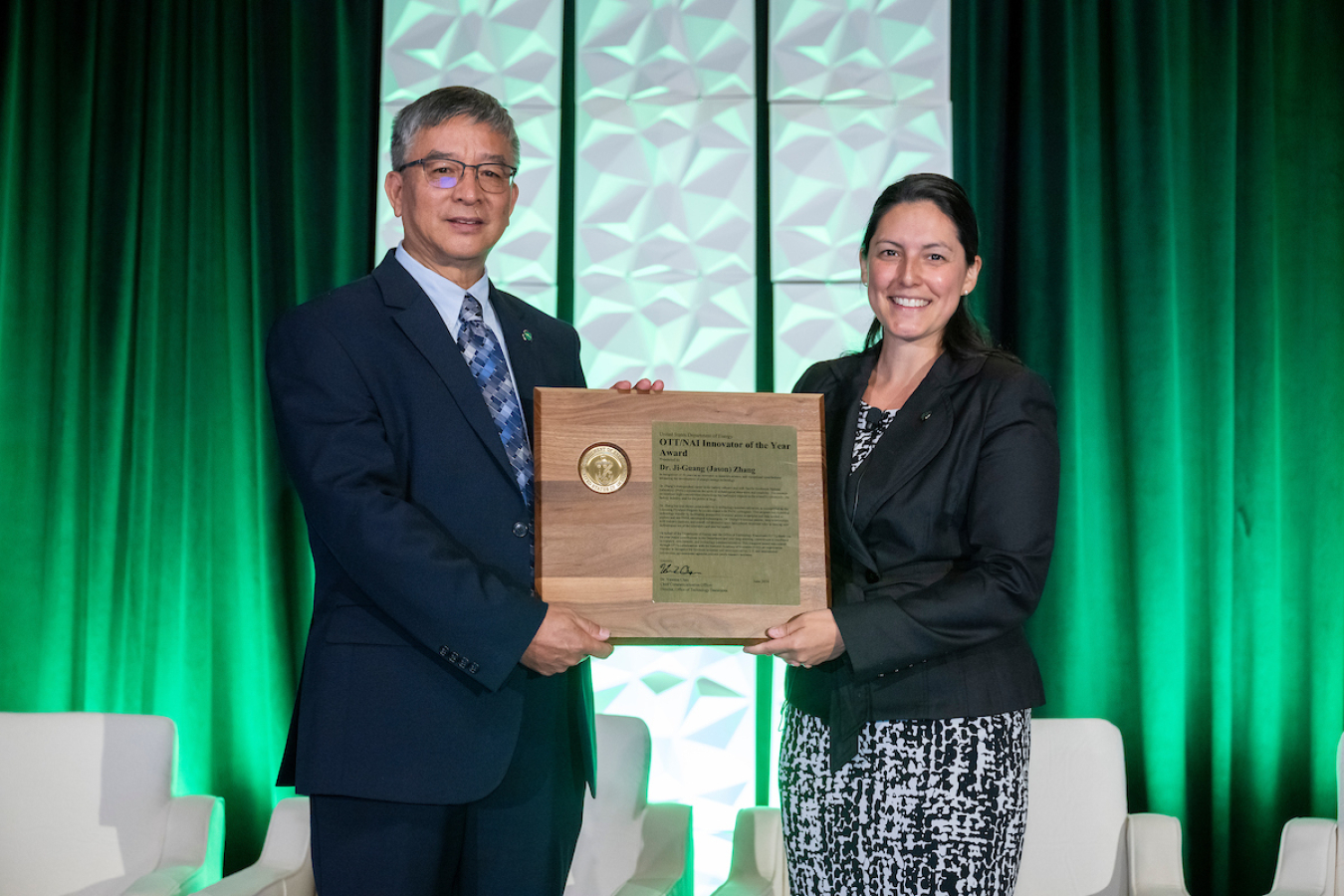National Labs recognized for delivering technologies that strengthen U.S. manufacturing, energy systems, and regional economies.
Office of Technology Commercialization
May 12, 2025As the 2025 Federal Laboratory Consortium (FLC) National Meeting gets underway this week, the Department of Energy (DOE) and its National Laboratories are taking home more honors than any other agency—13 national awards across seven categories. That recognition isn’t just about innovation for its own sake. It reflects real progress: tools and technologies that are being used to support U.S. industries, improve energy resiliency, and grow regional economies.
Many of these award-winning efforts trace back to work directly supported by DOE’s Office of Technology Transitions (OTT), which helps National Labs and their partners move promising ideas into real markets. Others were born out of close collaboration between researchers, entrepreneurs, manufacturers, and state and local stakeholders. What they have in common is a focus on outcomes—technologies that are showing up where they’re needed most and delivering tangible results for the American people.
Technology Transfer Innovation Award: Visual Intellectual Property Search (PNNL)
Pacific Northwest National Laboratory (PNNL) was recognized for creating the Visual Intellectual Property Search (VIPS) platform. This public database consolidates more than 20,000 patents and software packages developed across the DOE complex. Built with support from OTT, VIPS allows users to search for technologies by topic, lab, software language, or licensing status.
The platform updates weekly and includes contact information for licensing leads. VIPS helps make DOE’s research outputs more discoverable and accessible to entrepreneurs, universities, and investors.
Technology Transfer Innovation Award: SAFARI Program for Entrepreneur Engagement (ORNL)
Oak Ridge National Laboratory (ORNL) received this award for its SAFARI Program, developed through OTT’s Practices to Accelerate the Commercialization of Technology (PACT) initiative. SAFARI connects experienced entrepreneurs with lab-developed technologies through a structured process that includes curated portfolios, discovery visits, and commercialization planning.
The program helps advance promising innovations by pairing them with founders who bring early-stage market experience and product development skills.
Impact Award: Corrosion-Resistant Alloy for Industrial Applications (ORNL, Duraloy, Cleveland-Cliffs)
ORNL was honored for developing a cast alumina-forming stainless steel designed for high-temperature industrial use. The alloy addresses limitations of conventional materials used in manufacturing, power generation, and chemical processing.
Working with Duraloy and Cleveland-Cliffs, and supported by ARPA-E, the project advanced the alloy from concept to commercial deployment. The material is already in use in steelmaking and being evaluated for other sectors.
Impact Award: Facility Energy Decision System – FEDS (PNNL)
PNNL’s Facility Energy Decision System (FEDS) received an Impact Award for its role in helping facility managers plan energy efficiency upgrades. The software evaluates major building systems and recommends upgrades based on performance, cost, and site-specific factors.
FEDS has supported energy planning for military bases, federal campuses, municipalities, and school systems for over three decades.
Impact Award: U.S. Wind Turbine Database (LBNL and U.S. Geological Survey)
Lawrence Berkeley National Laboratory was recognized for its role in maintaining the U.S. Wind Turbine Database, developed in partnership with the U.S. Geological Survey and the American Clean Power Association. The open-access tool provides verified turbine locations and specifications, supporting decisions by grid operators, federal agencies, researchers, and local planners.
With over 74,000 turbines cataloged and regular updates since 2016, the database helps inform land use, wildlife protection, and energy forecasting across sectors.
Excellence in Technology Transfer Award: Sustainable Aviation Fuel Catalyst (ORNL and Gevo Inc.)
ORNL collaborated with Gevo Inc. to develop a catalyst that improves the conversion of alcohols into sustainable aviation fuels. The innovation helps reduce costs and supports more efficient production processes.
Backed by DOE’s Bioenergy Technologies Office, the catalyst has been integrated into Gevo’s SAF development efforts.
Far West Regional Technology Transfer Award: Silicon Battery Technology Deployment in Washington State (PNNL and Ecellix Inc.)
Pacific Northwest National Laboratory received a Far West Regional Award for its partnership with Seattle-based battery startup Ecellix Inc. to deploy novel silicon anode materials that increase energy storage capacity and performance.
The collaboration supports the reemergence of U.S.-based battery manufacturing and highlights the regional economic impact of transferring lab-developed energy storage technologies to a local commercial partner.
This project builds on research led by Dr. Ji-Guang “Jason” Zhang, who was recognized in 2024 with the OTT/National Academy of Inventors Innovator of the Year Award. Zhang’s work in lithium-metal, silicon-based, and sodium-ion battery technologies has consistently focused on advancing materials that perform under real-world manufacturing and usage conditions.
Zhang’s work in lithium-metal, silicon-based, and sodium-ion battery technologies has consistently focused on advancing materials that perform under real-world manufacturing and usage conditions
State and Local Economic Development Award: Fusion Development in East Tennessee (ORNL, TVA, TN ECD)
ORNL, the Tennessee Valley Authority, and the Tennessee Department of Economic and Community Development were recognized for their work in establishing a fusion innovation site at the retired Bull Run Fossil Plant.
Type One Energy will develop its stellarator prototype at the site, bringing more than $200 million in private investment and creating over 300 jobs in the region.
Interagency Trans-Disciplinary Partnership Award: ATOM Consortium for Drug Discovery (DOE Labs and HHS)
The 2025 Interagency Trans-Disciplinary Partnership Award was issued to the Department of Health and Human Services for the ATOM (Accelerating Therapeutics for Opportunities in Medicine) Consortium, which includes DOE’s Argonne, Brookhaven, Lawrence Livermore, Los Alamos, and Oak Ridge National Laboratories.
Working in partnership with the National Cancer Institute, the ATOM Consortium aims to transform cancer drug discovery using machine learning, data science, and high-performance computing. The collaboration is focused on accelerating early-stage screening and development timelines by integrating DOE computational tools and expertise into biomedical R&D workflows.
Outstanding Researcher/Small Research Team Awards
Three DOE scientists received this award for individual contributions to advancing technology transfer and commercialization:
- Jake Gentle, Idaho National Laboratory
Gentle was recognized for innovations that support electric grid management, infrastructure protection, and data security. His work helps modernize grid systems while improving resilience and operational efficiency. - Christina Wildfire, National Energy Technology Laboratory
Wildfire led the development of microwave-assisted ammonia synthesis, a lower-energy method for producing a key industrial chemical. Her work has resulted in new technology transfer agreements, startup formation, and regional demonstration partnerships. - Hongyou Fan, Sandia National Laboratories
Fan has contributed to multiple areas, including materials manufacturing, nanoelectronics, and critical mineral extraction. He played a key role in commercializing Disinfectant 2.0, and currently leads development of environmentally responsible methods for extracting valuable materials from coal and coal ash.
What ties these award-winning efforts together isn’t just technical merit or innovation — it’s follow-through. Whether it’s a new catalyst moving from the lab bench to a commercial plant or a software tool already shaping infrastructure planning, these technologies are moving because teams made sure they could.
As national needs evolve, so does the work of technology transfer. It’s not just about translating research — it’s about anticipating where that research can deliver the greatest impact and building the right partnerships to get it there. That’s the kind of momentum on display at this year’s FLC awards — and the kind DOE’s National Labs are built to sustain.




